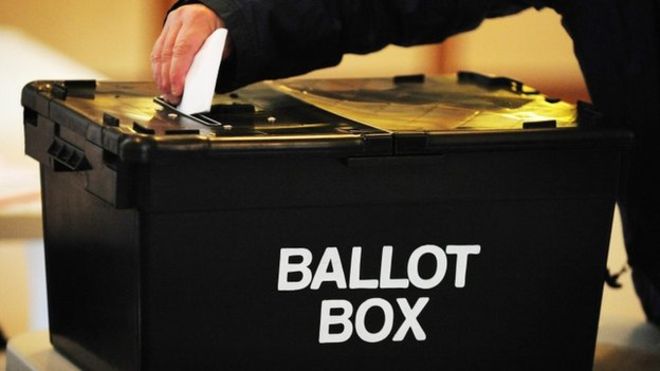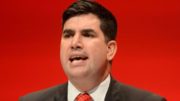With at least half of the results from this year’s local election now in, it is possible to get a slightly better picture of the way the political winds are blowing. The big losers seem to be the Conservative Party who have lost control of a number of councils and they’ve mostly lost them to either the Liberal Democrats and to ‘no overall control’. Labour haven’t exactly covered themselves in glory either. It is normally to be expected that during local elections, the largest opposition party, at present the Labour Party, gains at the expense of the governing party, currently the Conservatives. Labour lost councils including those such as Bolsover, Hartlepool, the Wirral, Basildon and most notably Peterborough which has been the Parliamentary seat of the disgraced ex-MP Fiona Onasanya. This bodes well for the Tories in the upcoming by-election in the Peterborough seat. In this local electoral cycle the pattern of the opposition gaining at the expense of the governing party seems to have been somewhat broken with electors saying no to either party and selecting the Lib Dems. The Lib Dems are no great friends of democracy or of British sovereignty and are wedded to the idea of the European Union, but they often have a very good ground game locally, even though their party is quite small in the House of Commons.
It seems to be the case that those who couldn’t stomach the idea of putting a cross next to either Labour or Conservatives, instead selected the Lib Dems as they may have seen them as the least worst option for their locality. It is most likely that it is this factor that also boosted the Greens and various flavours of Independent candidates. I think that many local electors may end up with buyers remorse for electing Lib Dems and Greens as many of their likely policies are going to be both expensive, possibly job destroying and intrusive.
UKIP really should have done better in these local elections. They should have been gaining seats not losing them, but lose them they did, 83 of them. UKIP need to up their ground game and not just be seen at election time, which seems to be the case. Maybe they should take a leaf out of the Lib Dem’s book and become more obviously busy and visible at other than election time?
The For Britain Party did better than I would have expected, based on their woeful performance in the Newport West by-election when they came last and behind a group that had unwisely invited Satanic Ritual Abuse hoaxers to speak at their conference, and gained a seat in Hartlepool. I suspect that this gain of a seat by the For Britain party is related to a generalised dissatisfaction with the way that Labour is running the area and in particular the woeful way that the previous Labour administration dealt with the problem of Islamic Rape Gangs. Hartlepool council has gone from being solid Labour to no overall control. This is going to make local politics in this area interesting to say the least. It is certainly a sign that in some local areas voters are fed up with the blatant Islamopandering that characterises Labour run areas these days and are voting to express their dissatisfaction with this pandering.
The main losers out of the election that I can see at the time of writing (15:50) are the Conservatives. They lost 500 individual council seats and 25 councils. This is a very poor result for the Tories as their voters are often some of the most loyal ones around. Tory voters in my experience will vote Tory even if they live in a Labour shithole where there is little chance of unseating Labour because of ingrained Labour voting patterns and often iffy postal votes. This time it appears that Tory voters may have stayed away or loaned their votes to either Lib Dems or to Independent candidates because they are unhappy at the way that the Conservative government has handled the Brexit process.
The obvious dissatisfaction and anger among the electorate at the two main parties over Brexit, left wing extremism and a general distrust of them is very plain in the results so far. These results also could be good news for Nigel Farage’s Brexit Party. A swing away from the Establishment Parties, the ‘Big Two’, might be an indication that the Brexit Party will do well in the upcoming European Parliament election, an election we should not have had because we should have left the EU by now. Mr Farage has quite positive name recognition and has managed to garner some quality candidates for the EU election which could bode well for them. Also, the Brexit Party is a fresh face and is unencumbered by much of the rancour and splits and bickering that engulfed UKIP prior to the leadership of Gerard Batten.
As for turnout, I predicted a very low turnout because of a widespread dislike of the political class both locally and nationally, but thankfully I was wrong on this. According to some of the reports I’ve seen, turnout was similar to the last time local elections were fought on this scale in 2016 which was roughly 35%. This is still in my opinion too low to properly reflect the opinions of the majority of Britons, but at least it was not a disastrously low turnout. There was one very low turnout in Leeds where only 31% bothered to get off of their backsides and exercise their right to vote. There also appear to be a considerable number of spoilt papers submitted by those who felt that there was nobody suitable to vote for. In one image that is circulating both on social media and in mainstream media outlets, the words ‘Traitors’ and ‘Brexit Party’ was scrawled across the ballot paper. If this image is representative of the general feeling of those who spoiled their ballot papers then it may well be another good sign for the Brexit Party’s prospects.
These have been very interesting elections, with the Establishment big two parties taking a bit of a beating and what seems like a lot of protest votes for both the Lib Dems and the Greens. I’m not sure whether that the results of this election will be reflected in the results of the next General Election due to be held in 2022 as voters often vote one way in local elections and another in General Elections. However, if the sort of result that we’ve seen from these local polls do carry over into the next General Election, then we might be seeing a House of Commons with less Tory members, less Labour members and a great deal more independents.






Another seat won by For Britain in Epping Forest!
That will piss off the Left
The Lib-Dems being the biggest beneficiaries prompts worry over how the media will spin this and the Tories interpret it—will they realise they must deliver a proper Brexit to keep their seats? Or that the LDs’ good result (if ignoring the low turnout, long the norm for local elections) means we’ve changed our minds and want to stay in the EU after all.
Wrt voter apathy: is it the apathy of laziness, ignorance and/or stupidity? Or the apathy of despair—from lack of control over their lives, constantly betrayed by the Political Class, our dysfunctional society inducing in them ‘learned helplessness’? Or simply that they want to be left alone to live their lives?
Regarding people not being ‘bothered to get off of their backsides and exercise their right to vote’: voting is not inherently virtuous nor is abstaining wicked. Some of those voting will be purple-haired SJWs (some so keen to ‘exercise their right to vote’ in 2017 they exercised it twice); meanwhile, many abstaining will be the ‘salt of the earth’—honest yeomen of England who simply can’t be arsed choosing between Useless Parasite A, Useless Parasite B and wannabe Useless Parasite C.
Consider that being a ‘political wonk’—as I admit to being myself—is neither a normal nor healthy pursuit. I’m ignorant of what the Torah counsels but the New Testament famously commands: ‘Render therefore unto Caesar the things which are Caesar’s; and unto God the things that are God’s.’ (Mat. 22:21, KJV) A man should work hard, attend to his family and community, pray to God, and be loyal to Crown and Country—not obsess over politics. That today’s society with its ever-expanding (flawed) legislation, (inefficient) regulation and (punitive) taxation forces us to so obsess is testament to its grossly dysfunctional nature.
Many would prefer just to be left alone.
Illustrative is the case of one of the Channel Islands, Sark, which suddenly saw their political, legal and cultural traditions up-ended due to an arriviste minority refusing to assimilate and imposing their practices and lifestyle on the islanders, whose community can trace its roots to 1565.
In this case, the minority was not our towel-wearing chums but the two Barclay brothers.
The Sarkees were happy with their way of life in the ‘last feudal state in Europe’, there being precisely zero pressure from below for change. But the Barclays cared nothing for that—between cultural arrogance and mercenary self-interest, they proceeded to bulldoze their way over Sark’s traditions.
So, in 2008, Sark held its first ever election. However, the Sarkees did not vote the way the Barclays wanted, so having successfully employed ‘lawfare’ to turn the Sarkees’ world upside down, they now proceeded to wage economic warfare against the ungrateful Sarkees.
Liberal democracy in action: you’re getting democracy whether you want it or not, so suck it up (and be grateful and vote the way your political masters want).
(Articles:
“Sark really is a world apart,” spiked, 19 Apr 2019.
“Sark Spring,” New Yorker, 22 Oct 2012.
“Barclay brothers lose supreme court challenge over Sark politics,” Guardian, 1 Dec 2009.
“A Revolution Not Televised,” Time, 17 Jan 2008.
“Lost world: the last days of feudal Sark,” Independent, 25 Oct 2006.)
The 1918 election—after the 1918 Representation of the People Act was passed, extending the franchise to almost anyone who could breathe—recorded a turnout of only 57.2% (in comparison, the three GEs prior to WW1 saw 83.2%, 86.8% and 81.6% turnouts; and in further comparison, only two GEs since—1950 & 51—saw turnouts >80%). It’s entirely possible that the push for mass democracy came from only an activist minority and MPs wanting to game the system; and the greater mass of people simply wanted to be left alone.
As another example, how popular was women’s suffrage amongst women themselves? With no plebiscite being held, none can say for certain; but it is notable that a petition with 337,018 signatures opposing female suffrage collected by the Woman’s National Anti-Suffrage League was presented to Parliament in 1909, while a similar petition from the suffragists had markedly less: 288,736 signatures. In the US, in Massachusetts, the women were consulted in 1895: and only 22,204 women out of an estimated 575,000 voted affirmatively in the referendum—<4%. Again, the push for female suffrage likely came only from an activist minority and MPs gaming the system, while the greater mass of women wanted to be left alone.
Ever more elected sinecures are being created—regional assemblies, mayors, PCCs—and if people, never having asked for the nonsense, boycott the election de jour, they get told by the likes of Dan Hannan that they ‘don’t matter’; but if dutifully voting but against our political masters’ wishes, their livelihoods are damaged (in the case of the Sarkees), they are routinely disparaged and vilified (in the case of Scottish Unionists and Brexiteers), or their vote simply ignored (Denmark in 1992, Irish Republic in 2001, France in 2005, Switzerland in 2014—and Britain TBC).
Pace Orwell, if you want a picture of the future, imagine a boot stamping on a human face—and doing so in the name of ‘freedom’ and ‘democracy’.